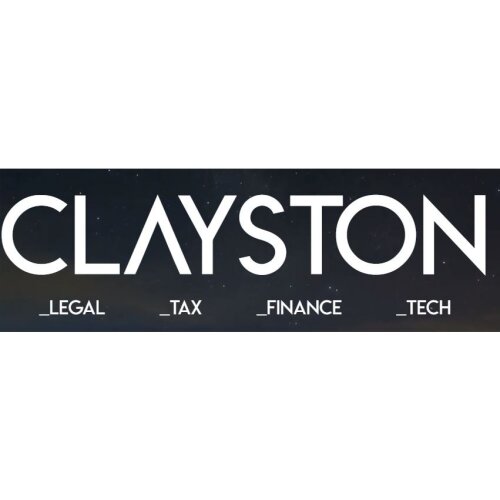Best Licensing Lawyers in Germany
Share your needs with us, get contacted by law firms.
Free. Takes 2 min.
Or refine your search by selecting a city:
List of the best lawyers in Germany
About Licensing Law in Germany
Licensing law in Germany is a vital aspect of the legal landscape, crucial for businesses and individuals involved in the use, distribution, or operation of intellectual property, technology, media, and more. It encompasses the rules and regulations governing the creation of licenses, which are legal agreements that allow one party (the licensee) to use the assets of another (the licensor) under specific conditions. Common types of licensing include software licensing, trademark licensing, patent licensing, and franchising. Licensing law in Germany is highly structured, ensuring the rights and obligations of parties involved are clearly defined and protected under the German Civil Code (Bürgerliches Gesetzbuch, BGB) and additional legislation pertinent to specific industries or asset types.
Why You May Need a Lawyer
Engaging a lawyer specializing in licensing law can be crucial in several situations, such as:
- Drafting and Negotiating Licenses: Creating robust, clear, and legally enforceable licensing agreements that protect your interests.
- Infringement Issues: Resolving disputes over unauthorized use of licensed material, whether you are the licensor or licensee.
- Interpretation and Compliance: Ensuring compliance with complex licensing terms and conditions to avoid legal pitfalls.
- International Licensing: Handling cross-border licensing issues, which involves understanding the interplay between German and international laws.
- Franchising Operations: Setting up, expanding, or managing franchised businesses.
Local Laws Overview
Germany's licensing laws are shaped by national legislation, European Union directives, and international treaties. Key points include:
- Intellectual Property Rights: Governed by the German Patent Act, Trademark Act, and Copyright Act, ensuring protection of innovative ideas and brand identifiers.
- Contractual Obligations: Under the German Civil Code, contracts require clarity and mutual consent, impacting how licenses are formulated and enforced.
- EU Laws: Directives from the European Union can affect licensing agreements, particularly in areas like competition law and digital services.
- Franchise Regulations: While Germany does not have a specific franchise law, it adheres to general competition law and contract law principles when governing franchise agreements.
Frequently Asked Questions
What is the importance of licensing agreements in Germany?
Licensing agreements provide legal permission to use intellectual property, ensuring protection for both the licensor and licensee, reducing the risk of disputes, and allowing structures for revenue generation.
How do I ensure my licensing agreement is legally enforceable in Germany?
Ensure the agreement is in writing, clear, and comprehensive, covering all essential terms like scope, duration, termination clauses, and jurisdiction, and comply with local and EU laws.
Can I license my German patent to multiple companies?
Yes, a patent in Germany can be licensed to multiple entities, as long as the agreements are clear and do not infringe on the rights or obligations of any party involved.
What should I consider when licensing software in Germany?
Consider limitations on use, support and maintenance terms, liability clauses, and compliance with the German Copyright Act.
How is franchising regulated in Germany?
Franchising is regulated through Germany's competition and contract laws, focusing on transparency, fair dealings, and consumer protection principles rather than specific franchise legislation.
Can licensing agreements be terminated easily?
Termination depends on the terms set within the agreement. Typically, conditions for termination are predefined in the contract, but German law may grant termination rights in case of fundamental breaches.
What role does the European Union play in German licensing law?
The EU provides directives that harmonize intellectual property regulations across member states, influencing how Germany implements and enforces licensing laws.
What remedies are available for licensing disputes in Germany?
Remedies can include negotiation, mediation, arbitration, or litigation, with courts enforcing agreements according to their terms or providing damages for breach.
Is it necessary to register a licensing agreement in Germany?
While not mandatory for all types of licenses, registering certain intellectual property licenses, like patents, with the German Patent and Trademark Office, provides legal clarity and priority.
Do I need a lawyer to draft a licensing agreement?
While not legally required, engaging a lawyer ensures the agreement is comprehensive, legally sound, and tailored to your specific needs and compliance with relevant laws.
Additional Resources
Consider the following resources for additional guidance:
- German Patent and Trademark Office (DPMA): For patent and trademark registration and information.
- Federal Ministry of Justice and Consumer Protection: Offers comprehensive legal texts and resources on German law.
- German Franchise Association (DFV): Provides support and guidelines related to franchising.
- Local Chamber of Commerce: Often offers advice and support for business licensing and compliance concerns.
Next Steps
If you require legal assistance with licensing in Germany, consider the following steps:
- Assess Your Needs: Understand what specific legal services you need, whether it's drafting an agreement, resolving a dispute, or navigating compliance issues.
- Research Legal Professionals: Look for lawyers or firms specializing in licensing law, with experience in the specific area of interest, such as intellectual property, software, or franchising.
- Consult Professionals: Arrange consultations with potential lawyers to discuss your situation, their experience, and fees.
- Review and Decide: Analyze the options and choose a legal professional who meets your needs and budget.
- Act Promptly: Begin any necessary legal processes to ensure compliance and protect your interests effectively.
Lawzana helps you find the best lawyers and law firms in Germany through a curated and pre-screened list of qualified legal professionals. Our platform offers rankings and detailed profiles of attorneys and law firms, allowing you to compare based on practice areas, including Licensing, experience, and client feedback.
Each profile includes a description of the firm's areas of practice, client reviews, team members and partners, year of establishment, spoken languages, office locations, contact information, social media presence, and any published articles or resources. Most firms on our platform speak English and are experienced in both local and international legal matters.
Get a quote from top-rated law firms in Germany — quickly, securely, and without unnecessary hassle.
Disclaimer:
The information provided on this page is for general informational purposes only and does not constitute legal advice. While we strive to ensure the accuracy and relevance of the content, legal information may change over time, and interpretations of the law can vary. You should always consult with a qualified legal professional for advice specific to your situation.
We disclaim all liability for actions taken or not taken based on the content of this page. If you believe any information is incorrect or outdated, please contact us, and we will review and update it where appropriate.
Browse licensing law firms by city in Germany
Refine your search by selecting a city.















